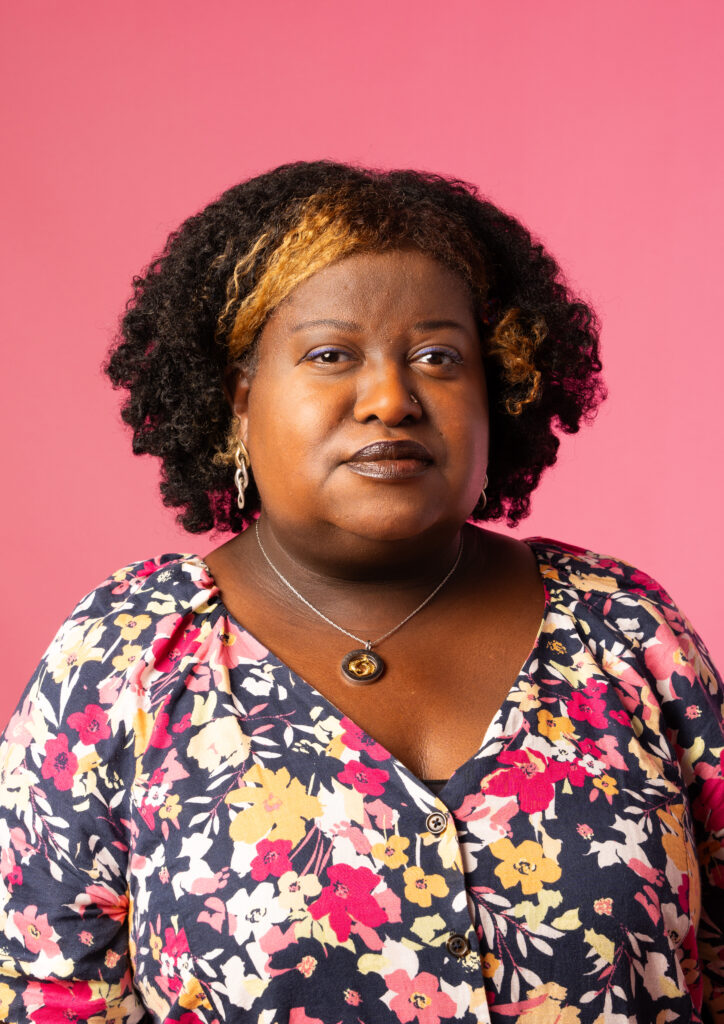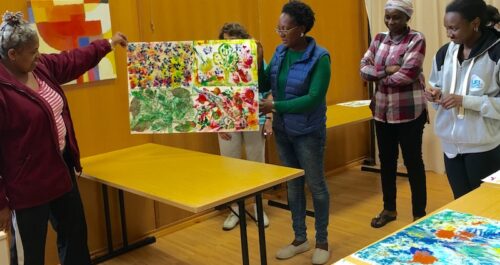

Claudette Purville
Audio PlayerCP: Claudette Purville
INT: Interviewer
INT: Can you tell us a bit about yourself?
CP: My name is Claudette Purville and I was one of the former Arts Accelerators, but before that I did some work for Rosetta and was introduced to Rosetta by inquiring about volunteering.
INT: Can you tell us a bit about your connection to Rosetta?
CP: I came here from Kuwait and it was I a hard time. I spent lockdown there, but spent, almost that entire time, painting and drawing with Kuwaiti artists. I had to come back to London to look after my mother, who has now passed, but I came back in 2021 to help look after mum. While I was in lockdown, after getting off plane, in quarantine I guess, I contacted five arts organisations. Rosetta was only one that got back to me. I was literally offering to volunteer my services, but none got back, with the exception of the one woman called Tina who worked for Rosetta. Here I am.
INT: Describe your journey since you met Rosetta and where you are now.
CP: It’s not been that long. I started out volunteering for their summer school. I’m a qualified teacher so I’m used to working with young people and used to working within the Arts. I mean, I’ve been involved in the arts in Brunei and Kuwait and, before that, for a long time. I’m not formally trained. I then did some shadowing here with a woman called Aisha, an exquisite artist of Pakistani origin, miniature artist. I was just around and they would phone me up and ask me to do little bits of jobs here and there, small jobs often no more than a day. It was then recommended by the end of, I think December 2021, or maybe November, to apply for the Accelerated Scheme, which was odd because I never considered myself an artist strangely enough. I did and I got a place on it.
Since then, I have been trying to work in a studio, but for me it’s a bit of a double-edge sword because I was caring for my mother, who was suffering and dying from all sorts of things, and then I was here, so for me this was quite a nice space. It was a safe space. It was somewhere that I could come for no reason whatsoever, but often come to draw paint, socialise and develop my skills. What I particularly liked was that they funded, as part of the scheme, they funded a mentor who I still have today after the scheme is finished. For me that was the most positive aspects of the of the programme and it’s been quite a journey. It’s been a long journey in calling myself an artist. I don’t think one starts out like that. I consider that myself right now.
INT: Can you say a little bit about things you would like to see in the future, in your own work and the things that you are doing?
CP: I would like Rosetta to continue doing what it’s doing, perhaps in a more refined sense. I believe there should be a more definite articulation of the space. I have a capital development background – developed at Arts Council England, so I’m trained with in the how spaces should be used, and how they should be used to the maximum potential. There’s a lot of potential here for artists to have studios. I’m not saying that they should have studios for their life, but they could have studios for three months. To have a studio – how valuable it is! Roughly, working with things like plastics and paints and things that would be toxic to have in their own homes, which is why somewhere like this, or an aspect of the building, would be important. Just to rationalise the space really and to have more outreach. I’m not heavily involved in the strategic side of things, so I’m sure they’re doing lots of things behind the scenes. My relationship is as a user and as somebody who’s done some work. I’ve also been running a few workshops for them, SEN and recently the Windrush series of workshops.

